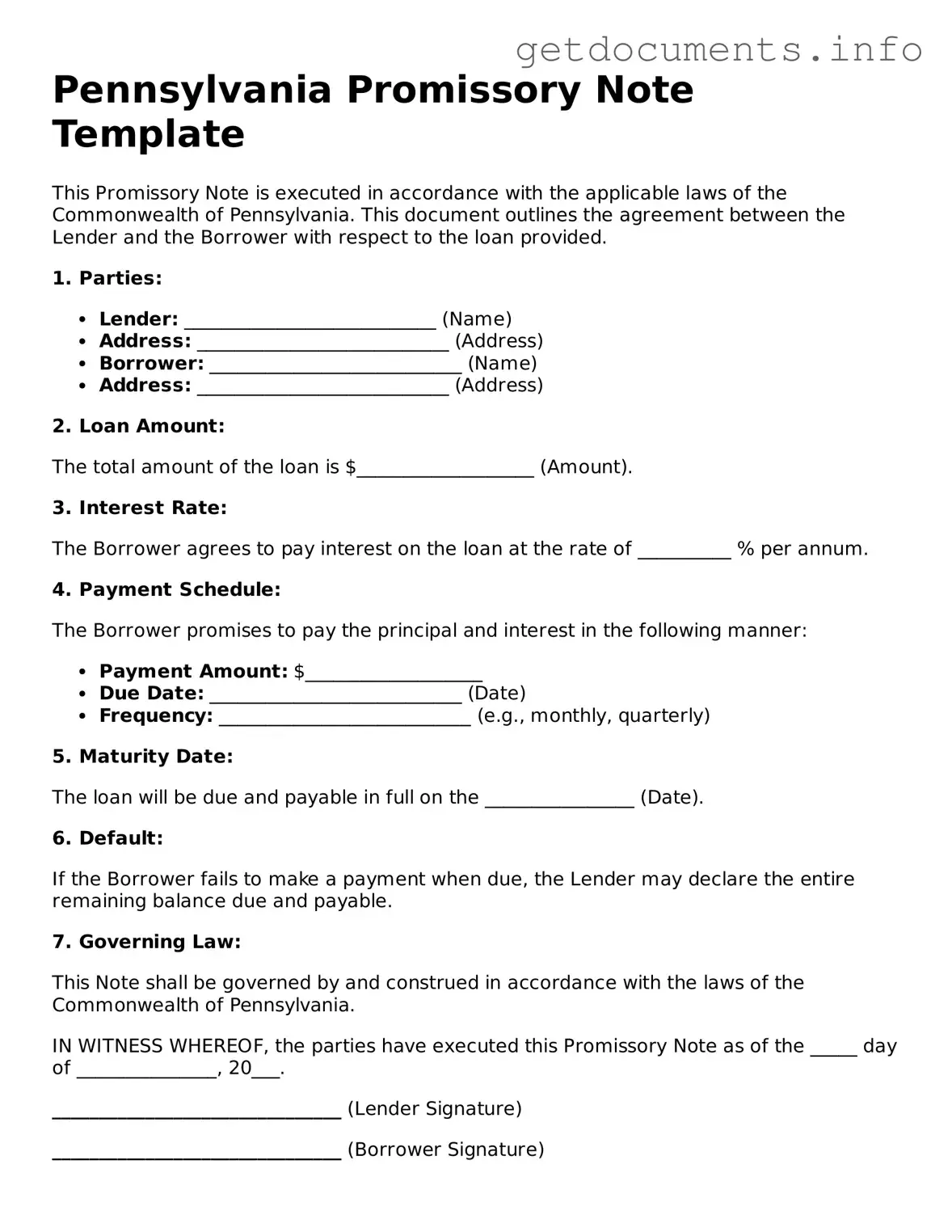Free Promissory Note Template for Pennsylvania
A Pennsylvania Promissory Note is a written promise to pay a specified amount of money to a designated person or entity at a future date or on demand. This document serves as a legal record of the debt and outlines the terms of repayment, including interest rates and payment schedules. For those looking to formalize a loan agreement in Pennsylvania, filling out the Promissory Note form is a crucial step.
Ready to create your Promissory Note? Click the button below to get started.
Access Promissory Note Editor

Free Promissory Note Template for Pennsylvania
Access Promissory Note Editor
Got places to be? Complete the form fast
Fill out Promissory Note online and avoid printing or scanning.
Access Promissory Note Editor
or
⇩ PDF File
